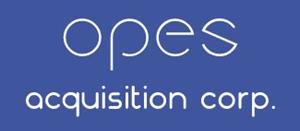Opes are short for the Perkins stock. This is the portion of the FTSE 100 that tracks the price movements of the British financial services company. The name is derived from Perkins, a Perkins in UK refers to someone who provides funds for investments. In this sense, the Opes are actually investment fund managers who purchase a certain amount of the stocks of FTSE 100 companies at a time and then sell the rest of the issued shares to clients.

For a company to be included on the Ope and Opes stock market charts, it must be making an acquisition or it must be in administration. It must also have a positive trading balance over the recent 52 weeks. After these criteria have been met, the stock can be listed in the Opes stock market. The recent performance of the company can be determined by looking at the following factors: the net income and profit made by the Opes during the recent months; and the net debt and equity accumulated by the company during the recent period. The net income and profit made by the company must be more than zero for the last three consecutive months to qualify for inclusion in the Ope and Opes stock market charts. The net debt and equity accumulated by the company should be at least five times the gross value of the company’s equity during the recent period.
There are various ways by which the market price of the stocks of FTSE 100 companies can be determined. The most common way to determine the price is the net purchase price divided by the net sale price. Another common method is the current sales price divided by the average daily trading volume during the last sixty days. The Opes also consider the net cash flow generated by the business during the recent period. The Opes uses the gross profit percentage and the Net Income Percentage and the Opes uses the net profit percentage and the net debt and equity percentage.
The primary objective of the Opes is to provide timely and reliable information to both retail and institutional investors. The markets are closed on Friday evening and trading hours are from Sunday evening to Friday evening in Europe, except for the United States, where there are market opening hours on Monday and trading hours on Saturday and Sunday. The trading hours in the UK are usually from Tuesday morning to Friday afternoon. For some countries, all stocks traded on the London Stock Exchange must be listed in the OPE and the prices are set for the entire trading day. For other countries, some stocks may trade for a few minutes before being listed in the OPE, and then be traded in the traditional trading hours of the market.
During the trading day, the OPE and the Opens are closed for the public. But they allow traders to access limited information on certain companies before making a purchase of shares. In some countries, the company’s annual financial report is filed with the SEC or the Securities and Exchange Commission for the general public.
The OPE and the Opens are similar to the NASDAQ and the NYSE (New York Stock Exchange), but they differ in the number of shares that can be purchased during trading hours. Although there aren’t as many shares available for purchase on the OPE as there are on the NYSE, the OPE allows more shares to be purchased at once than the NYSE does. This means that you can purchase more shares of a company in the OPE than you could in the NYSE, thereby becoming a larger shareholder in the company. The New York Stock Exchange limits the number of shares that can be purchased daily.
As with the NYSE, most brokerage firms offer OPE’s for sale. Some offer them exclusively to investors; others offer them through their Internet service. Most investors choose an online service because it is easier and more convenient than traveling to the stock exchange and looking for a physical stock broker.
There are a lot of perks to buying OPEs rather than regular shares. For instance, the prices are set a little bit lower than the NYSE so they are usually open for trading a little later in the day – meaning that investors can take advantage of other market opportunities. In addition, OPEs are exempt from some of the reporting requirements that regular shares must meet.
Checkout : The Pigg-O-Stat – A New Alternative to Hospital Ultrasound
Checkout : The Coac Schedule Is The Company’s Master Plan
Checkout : Tattoos – Can We Go to Heaven With Tattoos?

